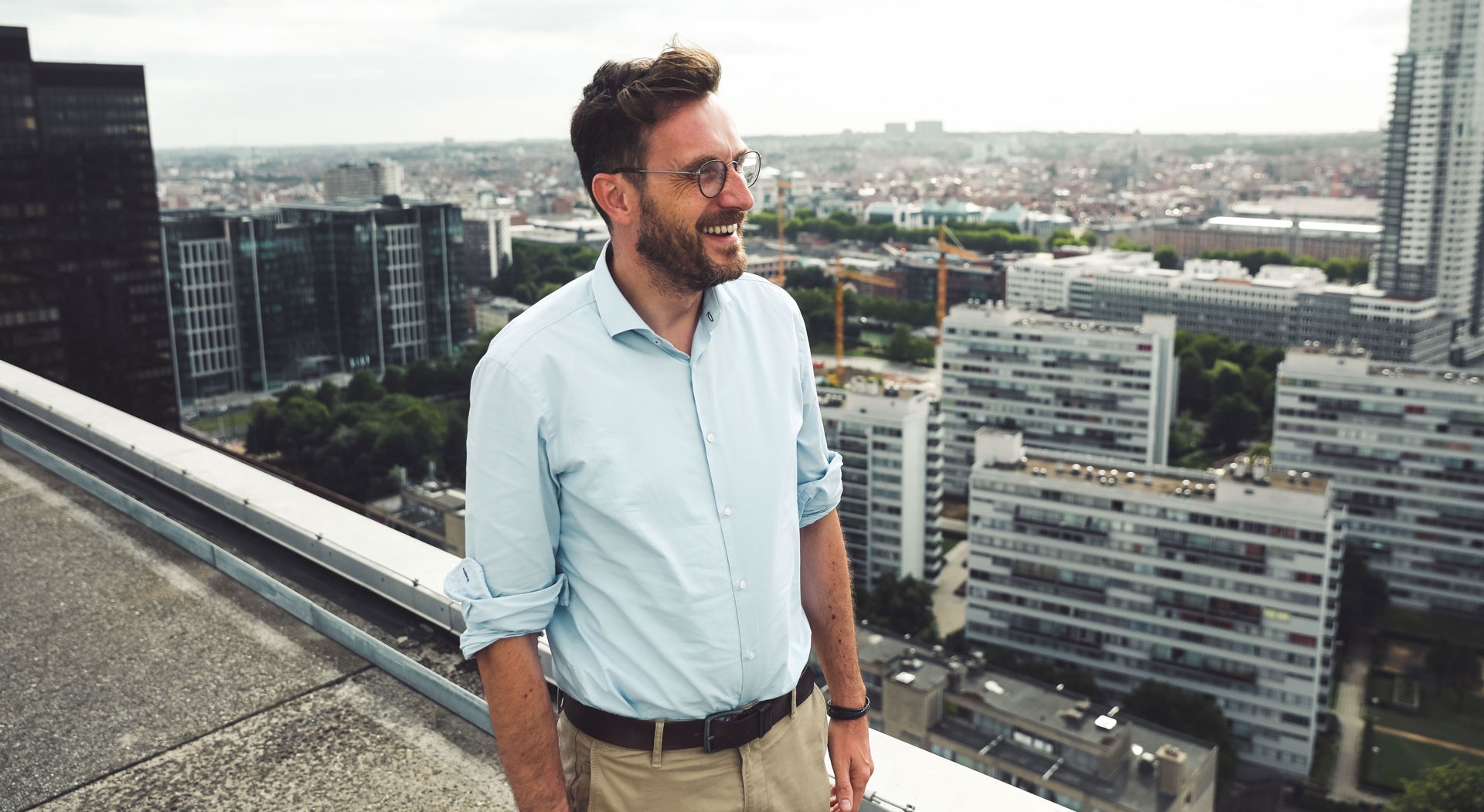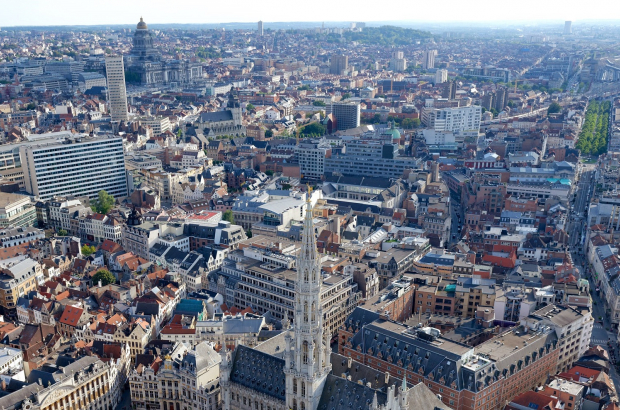- Daily & Weekly newsletters
- Buy & download The Bulletin
- Comment on our articles
Use your #BrusselsVoice: EU citizens asked for opinion on issues facing capital
“We have a democratic deficit,” says Pascal Smet. “If 20% of the people living in the city can’t vote, then you have a deficit.”
He is the Brussels secretary charged with both urban development and European and international relations. And he – realising that EU citizens living in Brussels who are not Belgian cannot vote at the regional level – has come up with a platform to find out how they would change the city if they could.
The platform Live Here, Speak Hear is a project of the Brussels Commission for Europe and International Organisations, an agency Smet helped found a couple of years ago. It is a liaison office between the Brussels Capital-Region and the European Institutions. It is responsible for all kinds of practical matters as well as the Welcome Desk for newly arrived EU workers.
With Live Here, Speak Hear, the office intends to find out how all of these EU citizens feel about three specific things: The workings of the Welcome Desk, living and working in the European Quarter and how the Brussels government could better represent them at the parliamentary level.
But it also offers the chance to tell this office – and Smet’s cabinet – what you think is the most urgent issue facing Brussels. What is the thing you would most like to see change. Or, as Smet puts it, what you think is missing.
‘Interbubbling’
“I’m really curious to hear what they consider is missing,” he says. “Because usually when people take part in these kinds of initiatives, they point out what is missing, something they don’t have that they would like to have.”
Smet (one.brussels) realises the opinions will be diverse and personal. “Maybe some will say, oh, we would like more bike lanes. Some people may ask about sport infrastructure, I can imagine some might say, let’s open the swimming pool in the Residence Palace again so we can get in a quick swim over lunch. Maybe they want more public space in general. European schools, interaction between the ‘European bubble’ and the local bubbles. An interbubbling! There are many potential themes, and it’s up to people to come and surprise us. I really want to know from these European citizens living in Brussels what they think we could do better.”
Smet is in favour of a “united states of Europe,” he says, where people would be able to vote in the place they live. But until then, this is a way to gauge how European citizens feel about the Brussels region.

Pascal Smet: ‘Europeans have strong opinions about Brussels’
“Brussels is second only to Dubai as the most cosmopolitan city in the world,” he says. “One in five people who are living in the region are citizens of the EU, they have a nationality of one of the member states, but they don’t have voting rights in the regional elections. They do for the municipal elections, but not everybody takes part in that. For some of them, it’s too local, too small. But on the level where it really counts, the region, they cannot vote.”
There is interest in voting at this level among EU citizens, as evidenced by campaigns launched in the past – which will no doubt pop up again during the next elections.
“One in five is quite a lot of people living here who have strong opinions about Brussels,” says Smet. We also see that they are starting to feel more a part of the city.” This was not the case a decade or two ago, he notes. “But now they have this feeling of belonging to Brussels. They have become part of Brussels. They want to be a Brusseleer and to do something with their new hometown.”
Concrete proposals
He is convinced that there is a wealth of input tied up in these people that the region is lacking. “We know these people cannot vote, and at the same time they are very urban thinking. They are open-minded, progressive, urban. So we need to hear what they think about their city, too.”
The idea is that expats register on the See Here, Speak Hear platform – which is using the hashtag #BrusselsVoice – and weigh in on the three designated themes as well as anything else they find important. They can do this until the end of September, at which time some of them (or all of them depending on the number of people who get involved) will be invited to in-person debates.
That process will lead to proposals drawn up by the Brussels Commission for Europe and International Organisations and Smet’s cabinet. They will be presented for discussion in the Brussels parliament by the end of the year.
This is where the title Live Here, Speak Hear comes in. Europeans living here are not only telling the region what they think, the region is listening, says Smet. “There’s nothing stupider than organising something like this, knowing what people want and then throwing it in the bin. That’s not the case here; we’re going to do something with it.”

What do you think of the European Quarter?
While the one in five figure of EU citizens living in the capital is impressive enough, the number of total non-Belgians is much greater still. More than 30% – one in three – residents of Brussels come from another country. And that doesn’t even include those with dual nationality, who are counted as Belgian.
While these people can certainly register and proffer their opinion on the topics, they are not the target group, Smet emphasises. “We wanted to start with a focus on the Europeans because it is a specific group,” he says. “But nothing is excluded. In a democracy, it’s important that everyone can express themselves. But we have to start somewhere, so we’re starting with this. You cannot do everything immediately because then it gets too big. But if it works, we can evaluate it, maybe expand it.”
All EU citizens living or working in Brussels are invited to register on the Live Here, Speak Hear website and address the topics. The site is open for input until the end of September
Photos, from top: Courtesy Visit Brussels, courtesy Pascal Smet’s office, ©Franky De Meyer/Getty Images



















Comments
There needs to be an overhaul of tax revenue distribution so that more of what is earned in Brussels is invested there. Transport needs radical overhaul, at least 2 new RER-style lines, with better use of existing heavy rail much like what has been achieved with London Overground.